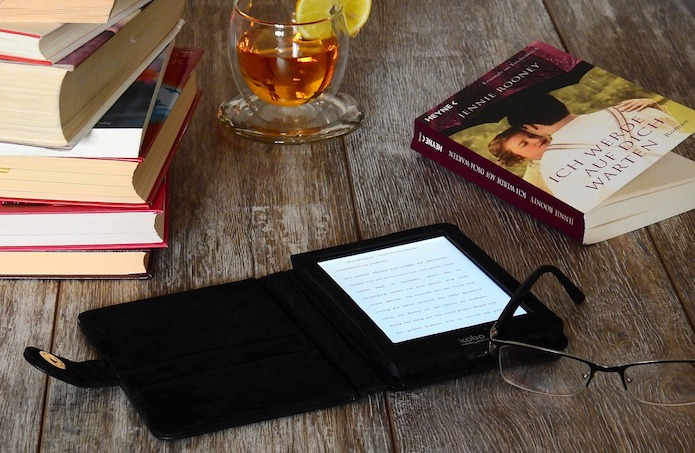Do-It-Yourself Audiobook Narration
While many well-known authors use popular audiobook narrators for their audiobooks, self-publishing authors often decide to narrate their own manuscripts. While this approach has pitfalls, with some quality equipment and trial and error, many technical problems can be avoided.

Many self-published authors are quite capable of narrating their own books. While audiobook narration can be difficult to adjust to, experimenting with tone and speed before trying to record for an audience can help create a good outcome.
However, if you’re paying for studio time, that experimentation can come at a high price.
It is possible, however, to use your own home as your recording studio.
First, you'll need a room with good acoustics. You don't want an echo from the room itself, or traffic noises coming from the outdoors.
You'll also need to have a computer that doesn't make a lot of noise. Generally, a laptop will be less noisy than a desktop; Apple products seem to have an advantage here as well.
A very good microphone is essential. Do not use the microphone built into your computer or webcam. Nor should you choose a microphone based on its sensitivity. Instead, you should choose a directional microphone - one that will record sound from in front of the microphone only. A cardoid polar pattern will also reduce unwanted sounds from the side and rear of the microphone.
You'll need a microphone stand, as handling the microphone during narration will produce unwanted noise, and you'll also want to pick up a pop filter or wind screen to reduce "plosives" - the unwanted breath pops that occur when speaking certain consonants into the microphone.
Unless you plan on running your audio through a mixer and amp before sending it to the computer, you can choose a microphone that plugs directly into the USB port of your computer.
Once your audio is recorded, you can fix small errors and improve sound quality with post-processing.
Don't expect perfect results the first time. It may take quite a lot of experimentation before you get a result you like. Even then, you should ask for feedback from others who know about audio recording.
A good place to look for advice on audio narration is Librivox. In fact, recording a chapter or two, or a few short stories for Librivox can be a good way to learn what works and what doesn’t when you’re narrating. The forums can help you learn how to improve your narration, as well as how to best clean up your audio files with software.
Most narrators on Librivox use the free and open source Audacity software. While it is free, there is a learning curve, so practicing with some public domain stories will help you feel comfortable with the process.
Read These Next
5 Free Tools to Convert Your Ebook to EPUB and Kindle Formats
When converting your manuscript into ebook formats for your own personal use or sale, there is no excuse for producing a poor quality, poorly formatted file. Free tools are available that can help you create a high-quality, validated ebook file in EPUB or Kinde Format 8 file types.
First Steps to the Finish Line
Judy Cullins offers advice to non-fiction writers who are hoping to write their first ebook quickly and effectively
Sonic Insights: The Case For Enriching Educational Catalogues with Audiobooks
In an era defined by innovation and evolving learning methodologies, publishers find themselves at a crossroads of opportunity. The traditional printed word, while timeless in its essence, is now joined by an increasingly popular, digital counterpart that taps into the human capacity for auditory engagement—audiobooks. As publishers navigate the ever-changing landscape of education, it’s time to explore why audiobooks should secure their place in the heart of educational catalogues.






